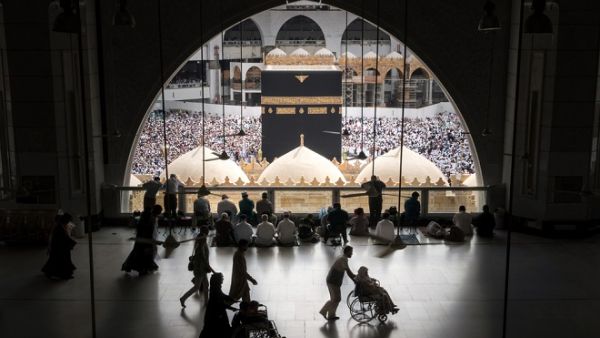Although Saudi Arabia is an attractive market for doing business, it can be a difficult one to navigate. As Ramadan approaches, professionals who are working in Saudi Arabia are advised to prepare for a slight shift in business practices and a potential slowdown in some processes.
Read more: What’s it like fasting in a non-Muslim office?
However, reports show that certain sectors thrive during Ramadan, such as retail and F&B, which can see up to a 25 percent increase in sales over the holy month. With the announcement of the Saudi Vision 2030 and the ambitious goals to diversify the economy, business practices are likely not to see the summer slowdown this year and in the next years, as they have done previously.
Ramadan is a time of fasting, focusing on prayers and being charitable and it is also a time of celebrating and connecting with friends and family. Ramadan offers a time for businesses to connect with their clientele as the holy month encourages a sense of community and belonging. For foreigners visiting the Kingdom, it is important to be respectful to the religious holiday and aware of customary etiquette.
Professionals working in Saudi Arabia during Ramadan should be prepared for some changes and allow for flexibility to their usual business practices.
Do's
Like most companies in the GCC, Saudi Arabia reduces the working day to a maximum of 6 hours for Muslims or 36 hours per week. This is to accommodate those who are fasting.
Muslim and non-Muslim employees are entitled to a four-day paid vacation for the Eid holiday, as per article 112 of the Saudi Labor Law. The vacation amount can be as much as 15 days, depending on the employer.
Visitors should take extra care in ensuring they are dressing modestly during the month of Ramadan.
It is custom to use the greeting “Ramadan Kareem” when meeting Muslims, and at the end of Ramadan, during Eid celebrations, the greeting “Eid Mubarak” is used.
During Ramadan, taking time to be generous and charitable to the less fortunate is a part of the essence of the month.
Accept invitations to Iftar meals. It is courteous to bring a gift or a dish to contribute.
The traffic is heaviest 30 minutes before sunset. Roads are congested as people head out to break their fast at Iftars with friends, family or colleagues.
Due to reduced working hours, governmental departments may experience delays.
Don'ts
Note that chewing gum constitutes as eating. It is considered disrespectful to eat during fasting hours and can lead to severe disciplinary action.
During Ramadan, smoking in public is not allowed until after the Maghreb prayer at sunset, and in Saudi Arabia, there will be few places that allow smoking during the month.
This is the same as other times of the year, but especially during Ramadan, avoid public acts of affection.
For foreigners experiencing Ramadan for the first time, it is important to stay respectful to those fasting.








